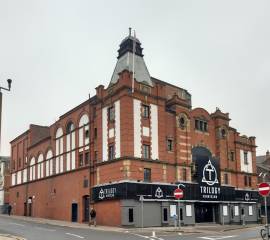Property - When the price is wrong

In the first in a new series on the food-pub property market James Cuthbertson examines the reasons why gastro-pub operators feel they don't get the price they deserve for their pubs.
For a number of years now, much of the innovation in the pub sector has surrounded those with a talent in the kitchen, who have turned average pubs in to great dinning experiences and transformed underperforming balance sheets into numbers that would have the pubcos salivating.
But many gastro-pub owners are unhappy with the price achieved for their businesses on the open market. Such owners have generally sunk their heart, soul and often a small fortune into transforming the fortunes of an otherwise "average pub". So why is it that when they come to sell their businesses, they aren't always achieving the numbers they believe these businesses are worth?
James Shorthouse, director at Christie+Co, suggests that the actual owner, rather than the property itself, may have a bearing on the price. "Differences are more likely to arise in the sales of gastro pubs owned by individuals. Often such gastro pubs are associated with well-known individuals-generally, but not exclusively, chefs," he says. "While this association may be a key ingredient in the trading success of these pub, it is also the root cause of the reason why, sometimes, the sale prices appear to represent a relatively low multiple of earnings.
"The price paid for a business has a number of components - the value of the legal interesting the land and buildings (freehold or leasehold), the value of the fixtures and fittings and the goodwill of the business. "The concern from the buyer's point of view, and a concern that the valuers and banks should also share, is that a proportion of the goodwill may be lost or significantly diminished upon a change of ownership."
Yaser Martini, director of Fleurets, believes that "over-capitalising" leads to problems. "At Fleurets," he says "we have identified a growing trend among London gastro-pub operators, where the operator over-capitalises, either by way of payment of a premium or by fit-out/refurbishment. This is often coupled with high wage/running costs that are associated with operations of this nature. Consequently, there is insufficient return on the all-important bottom line, in spite of strong levels of turnover and good GP's at the top half of the P&L (profit and loss). "This cycle then leads to the operator telephoning Fleurets to consider their options, only to experience frustration at why, in spite of much acclaim, award or review in the press, their most likely outcome on sale will mean that they realise less than their initial investment, resulting in the whole experience being viewed as a financial failure."
Yaser adds: "While it is a cliché. the phrase 'turnover for the vanity, profit for sanity' is appropriate here. From a property perspective, what this boils to is, once again, the profits method of valuation. "In essence, gastro operations (indeed and public-house operation) showing marginal or small premium and often this figure is less than the initial capital investment. Consequently, the agents advise to gastro-pub operations who are considering a sale is often difficult to comprehend."
Graham Allman, MD at GA Select asks his client to look to the future when they buy "The last thing that I say to purchasing of their dream property," he says," is 'think about your exit strategy'! "They take over the business full of vigour and enthusiasm. However, they rarely look towards the time when they will want to sell the business and reap some reward by way of capital gain for their good endeavours. Most businesses 'sell on' in around three years, but do not consider who they going to sell to. So the question should be "What type of business do I create'?"
Yaser adds: "Generally, the greater the profit from business, the more valuable it is. Conversely, if a business does not make a profit, or worse loses money, values are affected accordingly. At least, that's the theory. "However, the theory does not necessarily hold true in practice. We have sold many gastro-pubs for more than the historic sale figures would perhaps warrant, given the declared turnover and profits, particularly when you analyse the multiple of profit that has been achieved in the past for similar public-house sales"
While some of the leading property agents are increasingly asking their clients to look carefully at the gastro-pub model, there is doubt that this revolution has, in recent years, offered the general public a superior dinning experience in comfortable surroundings. So keep up the good work.













